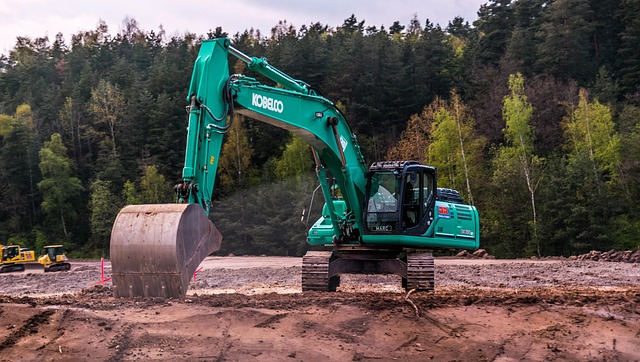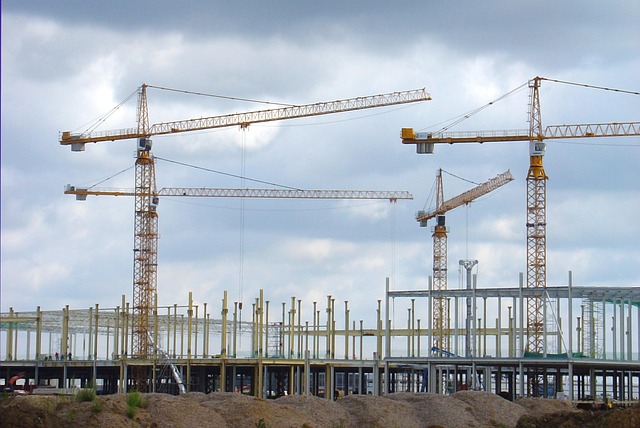In Denver's construction sector, construction loans are vital for builders and developers to finance projects from planning to completion. Securing these loans requires meeting strict eligibility criteria, including project scale, borrower financial health, and solid business plans. Options range from conventional banks to hard money loans, with varying interest rates. The process involves detailed application, credit checks, property appraisal, and loan commitment review. Managing risks through budgeting, cost assessments, and contingency funds is critical for successful project execution within Denver's market trends and regulatory requirements.
“In the vibrant construction landscape of Denver, securing funding is a cornerstone for any successful project. This comprehensive guide explores the intricate world of construction loans, a vital resource for transforming blueprints into reality. We delve into the key aspects, from understanding the unique dynamics of construction financing in Denver to navigating the approval process with confidence. Whether you’re a seasoned builder or a first-time developer, this article equips you with insights on eligibility criteria, loan types, and risk management strategies.”
- Understanding Construction Loans in Denver
- Eligibility Criteria for Construction Financing
- Types of Construction Loan Options
- The Application and Approval Process
- Managing Risks with Construction Lending
Understanding Construction Loans in Denver

In the vibrant construction landscape of Denver, understanding construction loans is key for successful project execution. A construction loan in Denver serves as a financial lifeline for builders and developers, providing the necessary capital to bring their vision to life. These loans are designed to cover the costs of constructing buildings, from initial planning to final touches, offering flexibility and funding options tailored to the unique needs of each project.
Denver’s booming real estate market underscores the importance of efficient financing mechanisms, with construction loans playing a pivotal role in navigating the bustling environment. Whether it’s for residential developments or commercial projects, these loans facilitate the acquisition of materials, labor, and professional services, ensuring that construction progresses smoothly. By aligning with local market trends and regulatory frameworks, construction loans in Denver empower stakeholders to transform architectural blueprints into tangible structures efficiently and effectively.
Eligibility Criteria for Construction Financing

In Denver, as with many cities, understanding the eligibility criteria for construction financing is paramount for prospective builders and developers. Lenders typically assess factors such as the project’s scale and complexity, the borrower’s financial health, and the land’s value to determine suitability. For a construction loan in Denver, strong credit history and a solid business plan are often non-negotiable. Borrowers should expect to provide detailed financial projections, including cost estimates for labor, materials, and potential contingencies.
Additionally, lenders may require collateral, typically in the form of a mortgage on the property, to safeguard their investment. The loan-to-value ratio—the amount borrowed compared to the property’s appraised value—is another critical factor. For construction loans in Denver, this ratio usually ranges from 75% to 85%, ensuring that lenders have a reasonable margin of security. Experience in the construction industry and a proven track record of successful project completion can significantly enhance a borrower’s chances of securing favorable financing terms.
Types of Construction Loan Options

Construction projects require significant financial backing, and one crucial aspect is choosing the right type of construction loan in Denver. There are several options available to cater to different project needs and scopes. These include conventional loans, which are typically provided by banks or lending institutions and offer competitive interest rates; government-backed loans like those from the FHA or VA, which can be attractive due to their favorable terms and insurance programs; and jumbo loans for larger projects that might exceed traditional loan limits.
Additionally, construction lines of credit allow contractors and developers to access a revolving fund during the building process, providing flexibility. There are also hard money loans, popular in Denver’s real estate market, offering rapid funding but with higher interest rates. Each option has its merits, and understanding these variations can help individuals or businesses make an informed decision when securing financing for their construction projects in Denver.
The Application and Approval Process

In Denver, securing a construction loan is a meticulous process that involves several steps and careful consideration. Prospective builders must first gather essential documentation, including detailed project plans, budget estimates, and financial statements. This information is then submitted to lenders who assess the feasibility and viability of the proposed construction. The application process requires a comprehensive understanding of the project’s scope and financial requirements.
Once the application is approved, which can take several weeks, the lender will issue a construction loan commitment. This commitment outlines the terms, interest rates, and repayment schedule. It’s crucial to review these conditions thoroughly as they vary among lenders. The approval process involves credit checks, property appraisals, and a thorough examination of the borrower’s financial health, ensuring that the project is not only feasible but also sustainable financially.
Managing Risks with Construction Lending

Managing risks is an integral part of any construction project, especially when it comes to securing financing through construction loans in Denver. Construction lending involves a unique set of challenges due to the inherent uncertainties and potential delays in the building process. Lenders and borrowers must work together to identify and mitigate these risks from the outset.
One primary risk is the possibility of cost overruns, which can be caused by factors like material price fluctuations or unforeseen site conditions. Proper risk management involves detailed budgeting, regular cost assessments, and having contingency funds in place. Additionally, construction loans often have specific timeframes, and delays can lead to financial penalties. Effective project planning, including realistic timelines and buffer periods, is crucial to navigate these risks successfully.
When it comes to bringing construction projects to life in Denver, accessing the right financing is key. Understanding the various construction loan options available, from traditional loans to more specialized schemes, empowers investors and developers. By navigating the eligibility criteria and managing risks effectively, individuals and businesses can secure funding for their ambitious building endeavors in this vibrant city. With the right approach, a construction loan in Denver can transform blueprints into reality.
